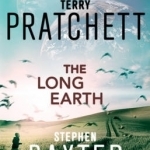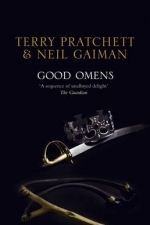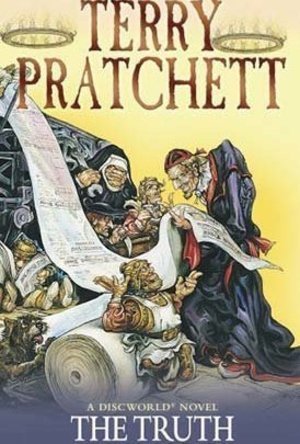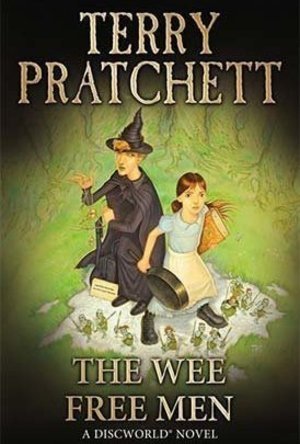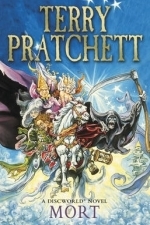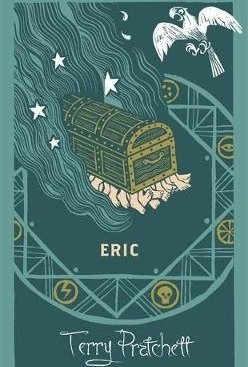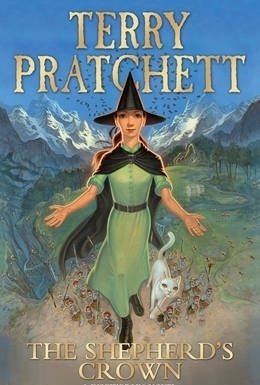Search
David McK (3721 KP) rated How Right You Are, Jeeves (Jeeves, #12) in Books
Jan 30, 2019
Impossible to read without envisioning Stephen Fry and Hugh Laurie, who were perfectly cast in the roles of Jeeves and Wooster, respectively. PG Wodehouse's grasp of the English vocabularly is top-notch, as ever: his powers of description using only a few words are second to known and is equalled, in my opinion, only by Terry Pratchett.
David McK (3721 KP) rated The Long Earth in Books
Jan 28, 2019
Terry Pratchett has long been one of my favourite authors; I don't think I've ever really read any of Stephen Baxter.
I do know that Pratchett has collaborated with other authors before - Neil Gaiman springs immediately to mind (<i>Good Omens</i>) - but Pratchett is better known for his series of Discworld books. Unfortunately, Discworld this ain't: slow moving with not much happening and might as well end with three little words: To Be Continued ...
Truth be told, on reading this it didn't really get much of a Pratchett 'feel' to the story - there was only occassional hints of his touch on the contents. I can't speak for how much it felt like a Baxter work, not having read many of his before, but if this <b>is</b> predominately his feel, and based purely on this one book, he's not an author I would be looking out for.
In short: disappointing.
I do know that Pratchett has collaborated with other authors before - Neil Gaiman springs immediately to mind (<i>Good Omens</i>) - but Pratchett is better known for his series of Discworld books. Unfortunately, Discworld this ain't: slow moving with not much happening and might as well end with three little words: To Be Continued ...
Truth be told, on reading this it didn't really get much of a Pratchett 'feel' to the story - there was only occassional hints of his touch on the contents. I can't speak for how much it felt like a Baxter work, not having read many of his before, but if this <b>is</b> predominately his feel, and based purely on this one book, he's not an author I would be looking out for.
In short: disappointing.
Sarah (7800 KP) rated Good Omens in Books
Sep 1, 2019
Wonderfully daft
After watching the tv series, I knew what to expect from the book and plot wise, there is very little difference between the two. But as always, the book is a lot better than the series.
I’m a big fan of Terry Pratchett, and this is a wonderful story showcasing his storytelling talents. It’s fun, entertaining, and full of British humour which comes across a lot better in the book than it does in the show. It’s a great story with some brilliant characters, although I do think it’s a rather unthreatening irreverent take on the end of the world, but i suppose that’s Pratchett all over.
I’m a big fan of Terry Pratchett, and this is a wonderful story showcasing his storytelling talents. It’s fun, entertaining, and full of British humour which comes across a lot better in the book than it does in the show. It’s a great story with some brilliant characters, although I do think it’s a rather unthreatening irreverent take on the end of the world, but i suppose that’s Pratchett all over.
David McK (3721 KP) rated The Truth (Discworld, #25; Industrial Revolution, #2) in Books
Sep 11, 2022
The Truth shall set you Fret!
<2022 update>
Still as good as ever!
<original review below>
So, over the weekend I watched a BBC documentary about the late, great, Sir Terry Pratchett (Terry Pratchett: Back in Black) as part of which they brought up the fact that his earliest job had been as a reporter for his local paper (and saw his first corpse a few hours later, work experience meaning something in those days ...) .
Experience that shows in this novel.
The second of the so-called Industrial Revolutions (after Moving Pictures) sub-series of the Discworld novels, this is - IMO - the first to really get into the meat of said revolution, and concerns itself with Ankh-Morporks first newspaper, alongside a plot to depose the Patrician - a character, I feel, who (whilst mostly in the background in the earlier novels) comes more to the fore in this, as do the likes of Foul Ol' Ron, Coffin Henry, The Duck Man and Gaspode
Of course, it wouldn't be a Pratchett novel without a generous portion of puns running alongside the satire, parody and memorable characters (such as, say, Otto von Chriek: the vampire with a thing for flash photography ...)
Still as good as ever!
<original review below>
So, over the weekend I watched a BBC documentary about the late, great, Sir Terry Pratchett (Terry Pratchett: Back in Black) as part of which they brought up the fact that his earliest job had been as a reporter for his local paper (and saw his first corpse a few hours later, work experience meaning something in those days ...) .
Experience that shows in this novel.
The second of the so-called Industrial Revolutions (after Moving Pictures) sub-series of the Discworld novels, this is - IMO - the first to really get into the meat of said revolution, and concerns itself with Ankh-Morporks first newspaper, alongside a plot to depose the Patrician - a character, I feel, who (whilst mostly in the background in the earlier novels) comes more to the fore in this, as do the likes of Foul Ol' Ron, Coffin Henry, The Duck Man and Gaspode
Of course, it wouldn't be a Pratchett novel without a generous portion of puns running alongside the satire, parody and memorable characters (such as, say, Otto von Chriek: the vampire with a thing for flash photography ...)
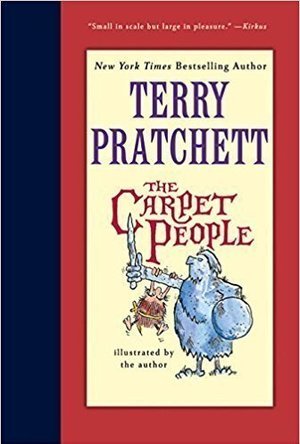
The Carpet People
Book
"In the beginning, there was nothing but endless flatness. Then came the Carpet." That’s the old...
Haecity (2 KP) rated The Wee Free Men (Discworld, #30; Tiffany Aching, #1) in Books
Feb 25, 2018
Listen to it instead of reading it
I didn't enjoy reading this book, it's not really my type of story. BUT when I switched to audio it had me laughing pretty hard. I enjoy the cleverness to the story, and on audio the absurdity was actually funny.
This was my first Terry Pratchett book and it was entertaining enough on audio that I will try to listen to more of his stuff!
This was my first Terry Pratchett book and it was entertaining enough on audio that I will try to listen to more of his stuff!
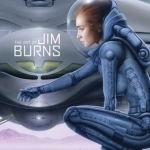
The Art of Jim Burns: Hyperluminal
Book
This is a new collection of art from one of the UK's most acclaimed sci-fi artists featuring...
Patrick Williamson (6 KP) rated Mort in Books
Mar 29, 2018 (Updated Mar 29, 2018)
His best book IMO
An early ish Discworld book and the first to introduce Death.
Because of the vast number of Discworld books written there is a lot of crossover in the later books and a lot of folklore building. The actual stories sometimes suffer for this but not in Mort. It works as a standalone as well as part of the series.
I'm so glad and lucky to have a signed copy.
RIP Terry Pratchett.
Because of the vast number of Discworld books written there is a lot of crossover in the later books and a lot of folklore building. The actual stories sometimes suffer for this but not in Mort. It works as a standalone as well as part of the series.
I'm so glad and lucky to have a signed copy.
RIP Terry Pratchett.
David McK (3721 KP) rated Eric: Discworld: The Unseen University Collection in Books
Aug 19, 2023
Early entry in Terry pratchett's Discworld series (I think it's book #9, and the 4th to have Rincewind); a parody of the tale of Faust.
Not Pratchett's best work: it fails to reach the heights he would later achieve in the middle segment of his career (around the time of Lords and Ladies, Maskerade or Soul Music), but having said that a sub-par Pratchett is still better than many other authors operating at their peek!
Not Pratchett's best work: it fails to reach the heights he would later achieve in the middle segment of his career (around the time of Lords and Ladies, Maskerade or Soul Music), but having said that a sub-par Pratchett is still better than many other authors operating at their peek!
David McK (3721 KP) rated The Shepherd's Crown in Books
Jan 28, 2019
THE FINAL DISCWORLD BOOK
Those four words were always going to make a long-time Discworld reader feel quite emotional, making it hard to objectively review the novel itself: are you reviewing this last peek into Pratchett's mirror reality, or are you reviewing the entire 41-book series? I'm going to try both:
THE SERIES
The first Disworld book I read (I'm pretty sure it was [b: Pyramids|64217|Pyramids (Discworld, #7)|Terry Pratchett|https://images.gr-assets.com/books/1439098306s/64217.jpg|968512]) wasn't actually the first in the series (that would be [b: The Colour of Magic|833512|The Colour of Magic The Illustrated Screenplay|Vadim Jean|https://images.gr-assets.com/books/1347346368s/833512.jpg|17589693]), although I did later go back and read the earlier works. Reading them in order released (as opposed to one of the numerous Discworld Reading Order Guides: I'm quite partial to the 'Unofficial Discworld Reading Order Guide'), you can see how Terry Pratchett's writing style evolved, how he moved from outright satire to a more subtle comedy fantasy that holds a mirror up to real-world issues. Personally, I feel he was at his best at around the mid-way point of the series (say, [b: Maskerade|64305|Maskerade The Play|Terry Pratchett|https://images.gr-assets.com/books/1170622047s/64305.jpg|62427] or [b: Men at Arms|7557548|Men at Arms The Play|Terry Pratchett|https://images.gr-assets.com/books/1353573652s/7557548.jpg|9910828], after he'd found his feet (so-to-speak), but before the 'embuggerance' of his posterior cortical atrophy set in and the novels - perhaps understandably - started becoming almost too serious.
Throughout the series, there was a rich tapestry of characters introduced, from CMOT Dibbler through to the Patrician of Ankh-Morpork, with certain groups of characters (e.g. The City Watch) effectively becoming a sub-series in their own right. One of those groups - Granny Weatherwax (first introduced in [b: Equal Rites|34507|Equal Rites (Discworld, #3; Witches, #1)|Terry Pratchett|https://images.gr-assets.com/books/1407706800s/34507.jpg|583611] and The Witches of Lancre (first introduced in [b: Wyrd Sisters|233664|Wyrd Sisters The Play|Terry Pratchett|https://images.gr-assets.com/books/1388363090s/233664.jpg|17589683] - would later themselves have 'guest spots' in another group of such characters, ostensibly written for Young Adult Readers but still very enjoyable for older; the Nac Mac Feegles (Crivens!) and Tiffany Aching, both of who first appeared in [b: The Wee Free Men|7881001|The Wee Free Men The Beginning (Discworld, #30 & #32)|Terry Pratchett|https://images.gr-assets.com/books/1388181365s/7881001.jpg|22017239]. Which nicely brings me to:
THE NOVEL ITSELF
'The Shepherd's Crown' sees a return of both Tiffany Aching, now a young Witch setting out on her career path, and those Nac Mac Feegles. There's a strong sense of change throughout, kicked off by the surprising early exit of a previous major character in the entire series, leading to old foes - the Elves - to try to make their way back into the world. These Elves, remember, are *not* the dainty do-gooders of Tolkien: these are nasty, malicious, self-serving creatures who last attempted to invade in [b: Lords and Ladies|34529|Lords and Ladies (Discworld, #14; Witches #4)|Terry Pratchett|https://images.gr-assets.com/books/1469186110s/34529.jpg|1185086], before eventually being defeated by Granny Weatherwax, Nanny Ogg and Magrat Garlik. Those three characters make a return in this, as well as bit-parts for the Arch-Chancellor of Unseen University, Ponder Stibbons (and HEX) alongside King Verence and the Patrician. Despite all these, the novel, however, is really Tiffany's story, and of how she finds her feet in the circumstances into which she is rather abruptly thrown. There's also a plot element that recalls [b: Equal Rites|34507|Equal Rites (Discworld, #3; Witches, #1)|Terry Pratchett|https://images.gr-assets.com/books/1407706800s/34507.jpg|583611]: that of a person wanting to do a role that is generally considered to be that for a member of the opposite sex.
As always, footnotes are present and correct, with the novel even raising a few laugh-out-loud moments. While the story does finish with the words 'THE END', the world itself will continue on: all that has come to an end is our ability to peek into it.
In the words of the Nac Mac Feegle: "Waily waily waily ..."
Rating for the series: 5*
Rating for the novel: 4*
Those four words were always going to make a long-time Discworld reader feel quite emotional, making it hard to objectively review the novel itself: are you reviewing this last peek into Pratchett's mirror reality, or are you reviewing the entire 41-book series? I'm going to try both:
THE SERIES
The first Disworld book I read (I'm pretty sure it was [b: Pyramids|64217|Pyramids (Discworld, #7)|Terry Pratchett|https://images.gr-assets.com/books/1439098306s/64217.jpg|968512]) wasn't actually the first in the series (that would be [b: The Colour of Magic|833512|The Colour of Magic The Illustrated Screenplay|Vadim Jean|https://images.gr-assets.com/books/1347346368s/833512.jpg|17589693]), although I did later go back and read the earlier works. Reading them in order released (as opposed to one of the numerous Discworld Reading Order Guides: I'm quite partial to the 'Unofficial Discworld Reading Order Guide'), you can see how Terry Pratchett's writing style evolved, how he moved from outright satire to a more subtle comedy fantasy that holds a mirror up to real-world issues. Personally, I feel he was at his best at around the mid-way point of the series (say, [b: Maskerade|64305|Maskerade The Play|Terry Pratchett|https://images.gr-assets.com/books/1170622047s/64305.jpg|62427] or [b: Men at Arms|7557548|Men at Arms The Play|Terry Pratchett|https://images.gr-assets.com/books/1353573652s/7557548.jpg|9910828], after he'd found his feet (so-to-speak), but before the 'embuggerance' of his posterior cortical atrophy set in and the novels - perhaps understandably - started becoming almost too serious.
Throughout the series, there was a rich tapestry of characters introduced, from CMOT Dibbler through to the Patrician of Ankh-Morpork, with certain groups of characters (e.g. The City Watch) effectively becoming a sub-series in their own right. One of those groups - Granny Weatherwax (first introduced in [b: Equal Rites|34507|Equal Rites (Discworld, #3; Witches, #1)|Terry Pratchett|https://images.gr-assets.com/books/1407706800s/34507.jpg|583611] and The Witches of Lancre (first introduced in [b: Wyrd Sisters|233664|Wyrd Sisters The Play|Terry Pratchett|https://images.gr-assets.com/books/1388363090s/233664.jpg|17589683] - would later themselves have 'guest spots' in another group of such characters, ostensibly written for Young Adult Readers but still very enjoyable for older; the Nac Mac Feegles (Crivens!) and Tiffany Aching, both of who first appeared in [b: The Wee Free Men|7881001|The Wee Free Men The Beginning (Discworld, #30 & #32)|Terry Pratchett|https://images.gr-assets.com/books/1388181365s/7881001.jpg|22017239]. Which nicely brings me to:
THE NOVEL ITSELF
'The Shepherd's Crown' sees a return of both Tiffany Aching, now a young Witch setting out on her career path, and those Nac Mac Feegles. There's a strong sense of change throughout, kicked off by the surprising early exit of a previous major character in the entire series, leading to old foes - the Elves - to try to make their way back into the world. These Elves, remember, are *not* the dainty do-gooders of Tolkien: these are nasty, malicious, self-serving creatures who last attempted to invade in [b: Lords and Ladies|34529|Lords and Ladies (Discworld, #14; Witches #4)|Terry Pratchett|https://images.gr-assets.com/books/1469186110s/34529.jpg|1185086], before eventually being defeated by Granny Weatherwax, Nanny Ogg and Magrat Garlik. Those three characters make a return in this, as well as bit-parts for the Arch-Chancellor of Unseen University, Ponder Stibbons (and HEX) alongside King Verence and the Patrician. Despite all these, the novel, however, is really Tiffany's story, and of how she finds her feet in the circumstances into which she is rather abruptly thrown. There's also a plot element that recalls [b: Equal Rites|34507|Equal Rites (Discworld, #3; Witches, #1)|Terry Pratchett|https://images.gr-assets.com/books/1407706800s/34507.jpg|583611]: that of a person wanting to do a role that is generally considered to be that for a member of the opposite sex.
As always, footnotes are present and correct, with the novel even raising a few laugh-out-loud moments. While the story does finish with the words 'THE END', the world itself will continue on: all that has come to an end is our ability to peek into it.
In the words of the Nac Mac Feegle: "Waily waily waily ..."
Rating for the series: 5*
Rating for the novel: 4*

